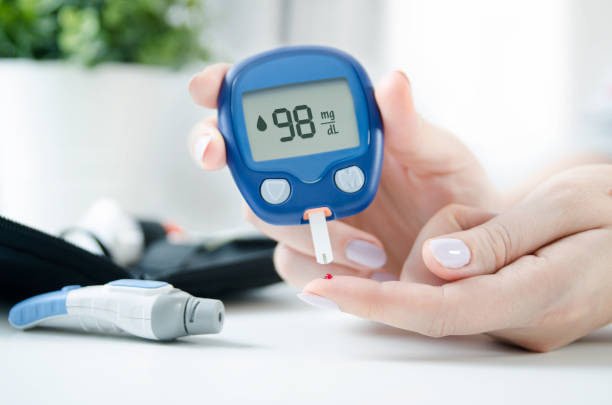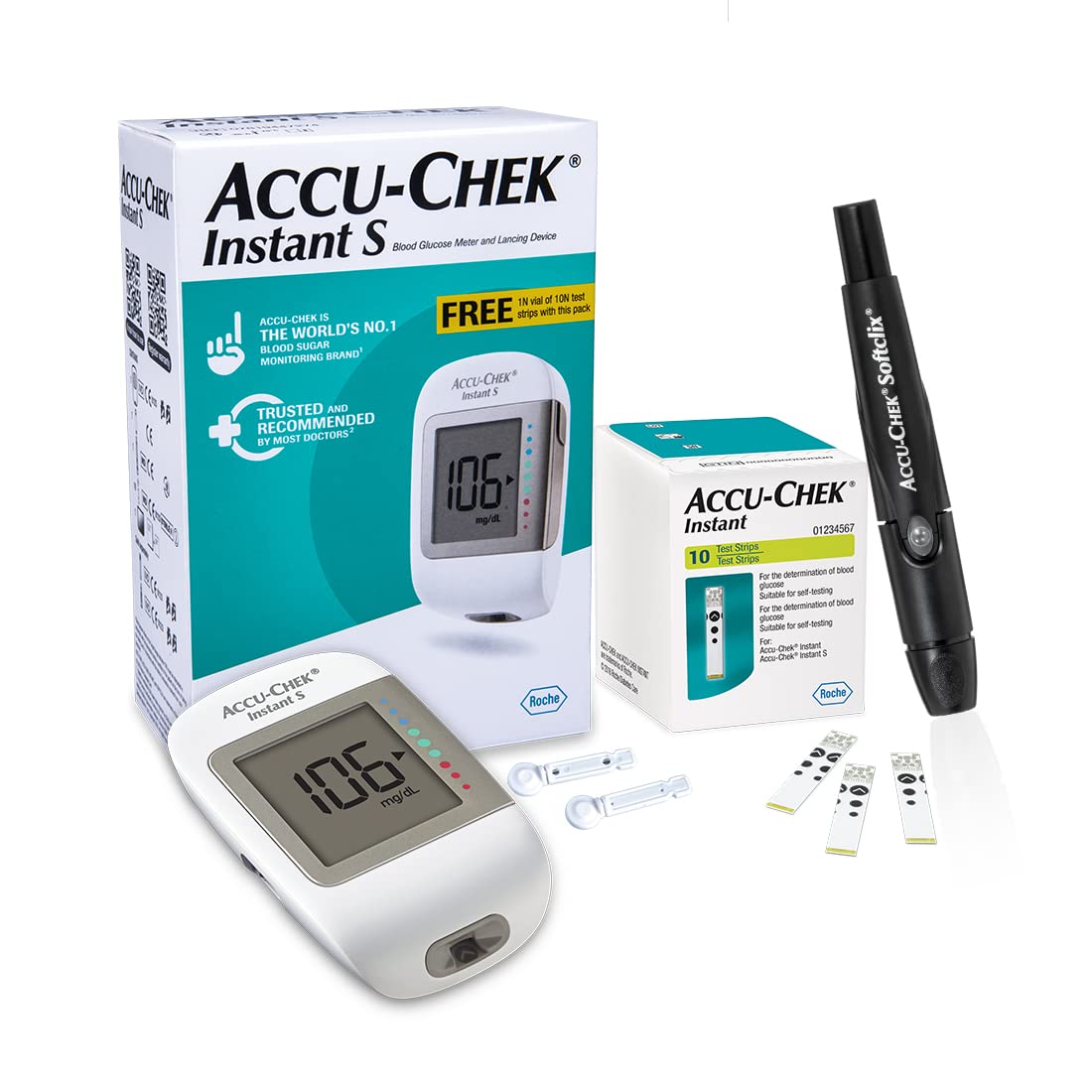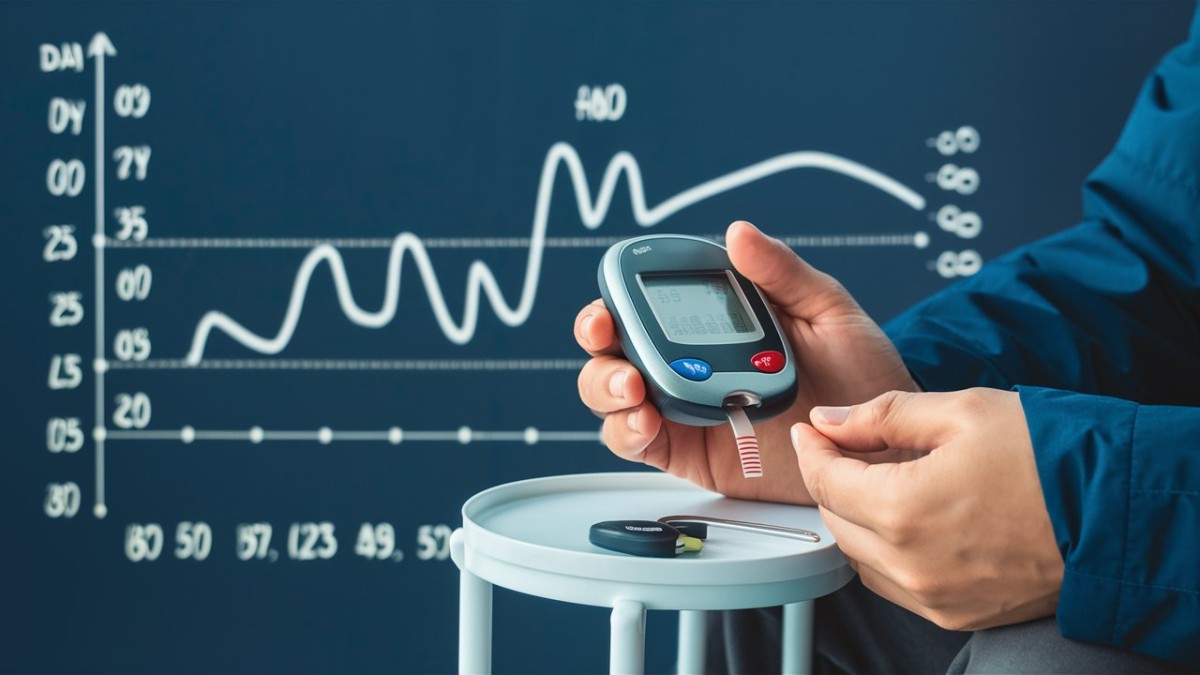Keeping up traditional glucose levels is dire for all-around success, particularly for those with diabetes or prediabetes. You can deal with your well-being by understanding what ordinary sugar levels are, how to take a look at them, and the variables that influence them. This thorough direct covers all you expect to realize practically standard sugar levels.
Understanding Blood Sugar Levels
 Blood sugar, or glucose, is the fundamental sugar found in your blood. It comes from the nourishment you eat and is your body's fundamental source of vitality. Your blood carries glucose to your body's cells to utilize for vitality. Diabetes is a condition where blood sugar levels are unusually high since the body cannot viably utilize glucose for energy.
Blood sugar, or glucose, is the fundamental sugar found in your blood. It comes from the nourishment you eat and is your body's fundamental source of vitality. Your blood carries glucose to your body's cells to utilize for vitality. Diabetes is a condition where blood sugar levels are unusually high since the body cannot viably utilize glucose for energy.
Normal Blood Sugar Levels in the human body
Blood sugar levels can vary all through the day, depending on different components like meals, physical movement, and push. Here are the common rules for ordinary blood sugar levels:
The blood sugar level following an overnight fast (eating nothing for eight to twelve hours) is known as fasting blood sugar (FBS). A common fasting glucose level is conventionally between 70 to 99 mg/dL (milligrams per deciliter). Postprandial blood sugar (PPBS) is the measurement of the blood sugar level two hours after eating. A commonplace glucose level in the wake of eating is under 140 mg/dL. The level of blood sugar that can be measured at any time of the day, regardless of when you last ate, is known as random blood sugar, or RBS. A typical arbitrary blood sugar level is for the most part between 70 to 140 mg/dL.
Categories |
Normal Fasting Sugar Level (mg/dl) |
Normal Post Prandiadial sugar level (mg/dl) |
|
Women |
<110 |
<140 |
|
Men |
<110 |
<140 |
|
Pregnant Women |
95-100 |
120-140 |
|
Newborn baby (within 1-2 hours) |
25-30 |
30-60 |
HbA1c (Glycated Hemoglobin)
The hemoglobin A1c (glycated hemoglobin, glycosylated hemoglobin, HbA1c, or A1c) test is utilized to assess an individual's degree of glucose control. The test provides an average and percentage of the blood sugar level over the previous 90 days. Diabetes can also be diagnosed with the help of a test.
Factors Impacting Blood Sugar Levels
Several components can impact your blood sugar levels. Understanding these can offer assistance you keep up way better control over your glucose levels.
Diet
 Your glucose levels are explicitly impacted by the sort of food you eat and the amount you eat. Carbohydrates have a significant impact on glucose. High-carb, high-sugar food varieties can rapidly raise glucose levels. In any case, entire grains and vegetables, which are high in fiber, greatly affect glucose levels.
Your glucose levels are explicitly impacted by the sort of food you eat and the amount you eat. Carbohydrates have a significant impact on glucose. High-carb, high-sugar food varieties can rapidly raise glucose levels. In any case, entire grains and vegetables, which are high in fiber, greatly affect glucose levels.
Also, read Sugar & Its Impact On the Human Body
Physical Activity
Active work Practice affects lower glucose levels by growing insult affectability and engaging your muscles to use glucose for essentialness. Customary physical action is useful for keeping up solid blood sugar levels.
Stress
 Stress can cause an increment in blood sugar levels due to the discharge of hormones like cortisol and adrenaline. Overseeing push-through unwinding procedures, workouts, and satisfactory rest is pivotal for keeping up ordinary blood sugar levels.
Stress can cause an increment in blood sugar levels due to the discharge of hormones like cortisol and adrenaline. Overseeing push-through unwinding procedures, workouts, and satisfactory rest is pivotal for keeping up ordinary blood sugar levels.
Medication
For people with diabetes, medicines such as affront or verbal hypoglycemics are fundamental to overseeing blood sugar levels. It’s imperative to take these solutions as endorsed and counsel your specialist if you involvement any side effects.
Illness
When you are sick, your body discharges hormones to offer assistance battle the sickness. Blood sugar levels may rise as a result of these hormones. Noticing your glucose all the more routinely and changing your drug as expected amid disease is significant.
Keeping an Eye on Blood Sugar Levels It is essential to monitor blood sugar levels regularly, particularly for diabetics. There are a few ways to screen blood sugar levels:
Self-monitoring of Blood Glucose (SMBG)
 Using a blood glucose meter, people can check their blood sugar levels at domestic. This includes pricking the finger to get a drop of blood, which is at that point set on a test strip and perused by the meter. SMBG gives prompt criticism on blood sugar levels.
Using a blood glucose meter, people can check their blood sugar levels at domestic. This includes pricking the finger to get a drop of blood, which is at that point set on a test strip and perused by the meter. SMBG gives prompt criticism on blood sugar levels.
Continuous Glucose Observing (CGM)
 CGM frameworks include wearing a little sensor beneath the skin that ceaselessly measures glucose levels in the interstitial liquid. These frameworks give real-time information and alarms for tall or moo blood sugar levels, making it less demanding to oversee glucose levels effectively.
CGM frameworks include wearing a little sensor beneath the skin that ceaselessly measures glucose levels in the interstitial liquid. These frameworks give real-time information and alarms for tall or moo blood sugar levels, making it less demanding to oversee glucose levels effectively.
HbA1c Test
The HbA1c test, as a rule, done in a lab or doctor’s office, gives a normal blood sugar level over the past three months. This test is pivotal for understanding long-term blood sugar control.
Tips for Keeping up Typical Blood Sugar Levels
Maintaining typical blood sugar levels includes a combination of the solid way of life choices and standard checking. Here are a few tips to offer the assistance you overseeing your blood sugar levels effectively:
Eating routine
Eat a balanced diet that is high in natural products, vegetables, whole grains, lean proteins, and healthy fats. Introduce complex carbohydrates in your diet, which boosts energy without affecting blood sugar levels.
Daily Exercise
 Workout regularly aim for 150 minutes of high-impact, moderate-intensity, swimming, biking, or brisk walking per week. Join quality readiness no less than two times every week to help progress and battle responsiveness.
Workout regularly aim for 150 minutes of high-impact, moderate-intensity, swimming, biking, or brisk walking per week. Join quality readiness no less than two times every week to help progress and battle responsiveness.
Stay Hydrated
Drinking a bounty of water makes a difference keep up ordinary blood sugar levels. Drying out can lead to higher blood sugar levels, so it’s basic to remain hydrated all through the day.
Reduce Stress
Practice stress-leasing activities, for example, reflection, yoga, significant breathing exercises, or relaxation exercises that you appreciate. Palatable rest is in addition critical for supervising push and keeping up common glucose levels.
Monitor Blood Sugar Levels
Regularly check your blood sugar levels to determine how distinctive components influence your glucose levels. This will offer assistance in you making educated choices around your eating less, working out, and medication.
Conclusion
Work closely with your doctor to create a custom coordinate to coordinate your glucose levels. Stick to your commitments and schedule regular check-ins to track your progress. Everyone, but especially those with diabetes or pre-diabetes, needs information on how to control their blood sugar. By monitoring your glucose, real quality ranges to care about lifestyle choices, diet, and the right medications, you can reduce your glucose sensibly and your risk of confusion. Remember that maintaining normal glucose levels is a firm hold that requires excitement and commitment, but the focus on transient and mass gains and success is worth the work.
